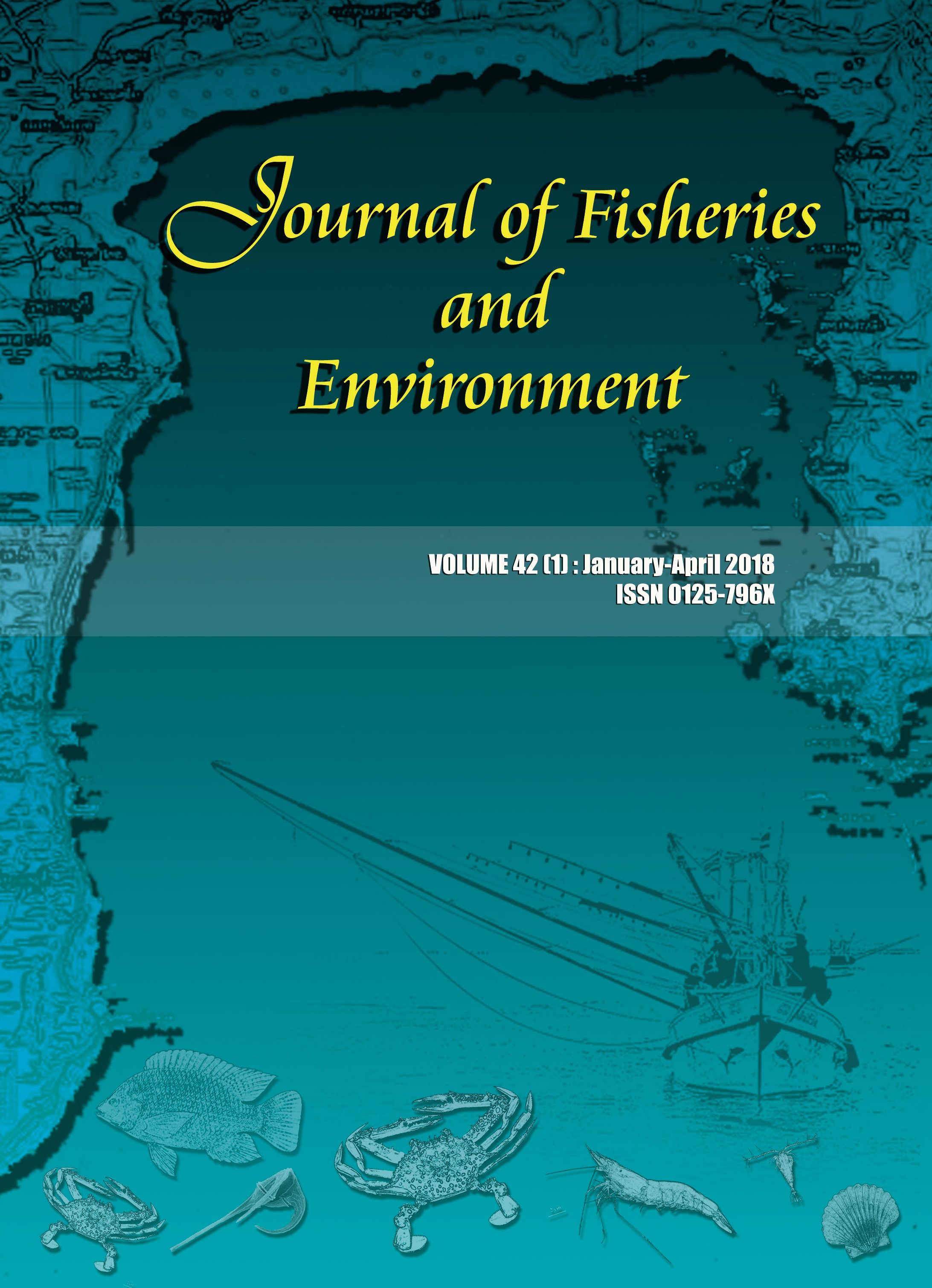Economic and Marketing Capability Improvement for Small Scale Aquaculture Farmers through Community Organizations
Main Article Content
Abstract
The majority of aquaculture practices in Thailand are small scale, composed of individual farms and, therefore, the development of aquaculture needs to be managed by community organizations to increase the power of negotiation with middlemen. There are various community organizations: non-juristic organizations, juristic organizations and cooperatives. The purposes of this study include the following: 1) the study of cost-return, and, 2) SWOT analysis to improve community organisation. Data were collected from in-depth interviews of 30 group members, 10 community leaders and local government officers in each organization. The research methods employed were cost-return analysis and SWOT analysis. The net profit of members in community organizations is a factor indicating the capacity of the aquaculture organization. The net profit organisations are from Pan, Pak Phanang, Tatong, Chachoengsao, Tasoong and Chanthaburi while the others (Nakhon Nayok and Samroiyot-Pranburi) were non-profit organisations. SWOT shows that internal factors including leaders and members, production and marketing development and funding were the most significant in driving the success of the community groups. External factors including government support, disease risk reduction and water problem reduction support the capacity of the community organization. Recommendations for community organization development include: 1) members’ collaboration, 2) skills of leaders, 3) convenient offices serving the members, and, 4) Full supply chain services to members.
Article Details
References
2. DIP. 2018. GI (Geography Indicator) registration (Online). https://www.ipthailand.go.th/images/781/s_56100061_1.pdf
3. Houben, G.K., K. Lenie and K. Vanhoof. 1999. A knowledge-based SWOT-analysis system as an instrument for strategic planning in small and medium sized enterprises. Decision. Support Syst. 26, 2 (August 1999), 125-135.
4. Kuldilok, K. 2016. Strengthening Sea Bass Aquaculturist Capacity via Sea Bass Aquaculturist Group Network in Chachoengsao Province. National Conference of Sukhothai Thammathirat Open University 2016. P.45-61 (Thai Proceedings)
5. Laknapichonchat, T, Soomboon S, Sirichodok P. 2008. Empowering the Shrimp Farming Cooperatives Networks for Contract Farming in Thailand and Abroad market. Report. The Thailand Research Fund (Thai). 320 p.
6. Ostrom, E. 1990. Governing the Commons: The Evolution of Institutions for Collective Action. Cambridge University Press. 271p.
7. Porter, M.E. 1985. The Competitive Advantage: Creating and Sustaining Superior Performance. NY: Free Press. 580 p.
8. Tokisna, R., K. Kuldilok and K. Boonchuwong. 2016. Strengthening Aquaculturist Capacity via Community Organization. Report. The Thailand Research Fund. (Thai). 237 p.
9. Tokisna, R., K. Kuldilok and K. Boonchuwong. 2013. Capacity Building for Thai Fish Farmers towards ASEAN Economic Community: Status and Outlook. Report. The Thailand Research Fund. (Thai). 702 p.
10. World Atlas. 2017. Thailand – Outline Map (Online). https://www.worldatlas.com/webimage/countrys/printpage/printpage.php?l=/webimage/countrys/asia/outline/thout.gif. Cited 15 October 2017.


